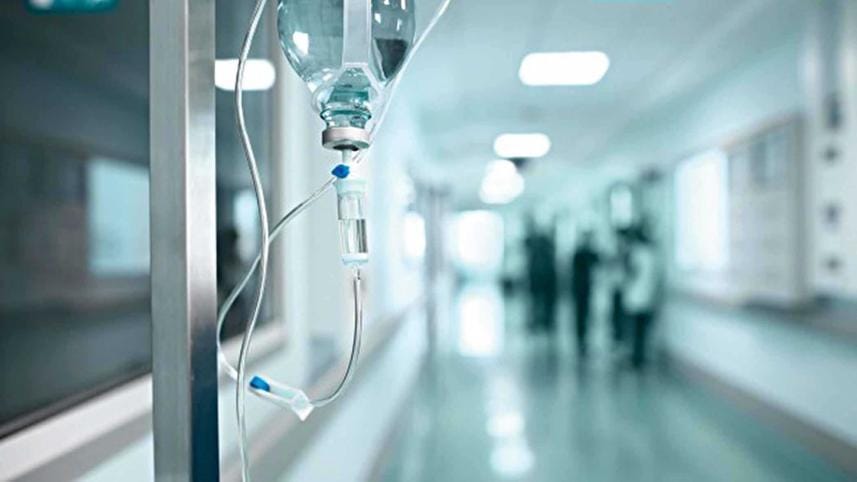Plan to build back better

The world is at a crossroads. Almost two years since SARS-CoV-2 was detected, some countries globally are returning to normal, or something very close. Many more countries—including in the WHO South-East Asia Region—continue to aggressively respond, battling new and more transmissible variants. Social and economic disruptions continue.
The Covid-19 crisis is not over—far from it. We have many more months ahead. Global vaccine inequities continue to be a challenge, causing avoidable disease and death, and risking the emergence of new variants. If you are eligible, get vaccinated. Whatever one's vaccination status, continue to take precautions: Wear a mask, wash hands and watch distance. Avoid crowded places, close-contact settings, and confined and enclosed spaces. We must not let down our guard.
The pandemic will soon enter its third year. In addition to Covid-19, the region faces a range of pressing threats, from emerging and re-emerging diseases, to natural disasters and climate-related weather events. In 2021 alone, India, Indonesia and Timor-Leste have responded to floods. Indonesia and Nepal have responded to earthquakes. In all countries of the region, the need of the hour is to strengthen capacities to prevent, prepare for, respond and recover from Covid-19 and other health emergencies, and to accelerate progress in all areas of health, towards our eight Flagship Priorities and the health-related Sustainable Development Goals (SDGs).
We know what is required. Strong health systems that are primary healthcare (PHC)-oriented, and which leave no one behind, create populations that are healthier, more productive and financially secure. Resilient health systems are the bedrock of emergency preparedness and response, and ensure that when acute events occur, essential health services can be maintained.
In ordinary times, every dollar spent on PHC-oriented health systems yields an average return of at least nine to one. In lower-middle-income countries, that return can more than double, and accelerates progress on other SDG targets, such as zero poverty, decent employment and gender equality. Consider that in September 2020, the Global Preparedness Monitoring Board estimated that it would take the world 500 years to spend as much on investing in preparedness—including on PHC-oriented health systems—as it was losing due to Covid-19.
Countries of the region unanimously agree: Action to build back better essential health services cannot and must not wait. And they have a clear plan on how it should be done, as detailed in a "declaration" issued at the 74th Session of the WHO Regional Committee.
First, health leaders will mobilise leadership and accountability across sectors, with full recognition of the need for a health-in-all-policies approach that addresses social, economic and environmental determinants of health, and which empowers communities. Governance of the health sector in particular will be strengthened, including through greater oversight and engagement with the private sector and civil society organisations.
Second, increased public investments in health that are allocated towards strengthened PHC services, enhanced human resources for health, and increased access to essential medical products. Since 2019, WHO has advocated that all countries globally increase spending on PHC by at least 1 percent of GDP.
Third, better integrating health emergency and disaster risk management strategies, as well as public health emergency preparedness and response capacities, with PHC services. Based on years of experience responding to health emergencies, countries of the region agree that to be effective, an emergency response must be embedded within affected communities and existing health structures, reducing response times, empowering local networks, and responding to on-the-ground needs as and when they arise.
Fourth, leveraging the potential of traditional systems of medicine, as well as key innovations in digital and disruptive health technology. We must draw on our past in a way that is safe, effective and well-regulated. We must embrace our future in a way that is appropriate and sustainable, and which integrates technologies into existing systems.
Fifth, strengthening partnerships. Covid-19 has shown that robust and reliable bilateral, multilateral and public-private partnerships are critical to emergency response and to maintaining essential health services. Such partnerships must continue to be strengthened, not only to anticipate and respond to emerging needs, but to feed into and support an overall vision that is cohesive, and which is aligned with our long-term targets and goals—our Flagship Priorities and the SDGs.
We have before us a once-in-a-century opportunity to strengthen and transform health systems, accelerating a health and economic recovery that is more equitable, resilient and sustainable for all. The future belongs to the bold.
Dr Poonam Khetrapal Singh, WHO South-East Asia Regional Director.



 For all latest news, follow The Daily Star's Google News channel.
For all latest news, follow The Daily Star's Google News channel.
Comments